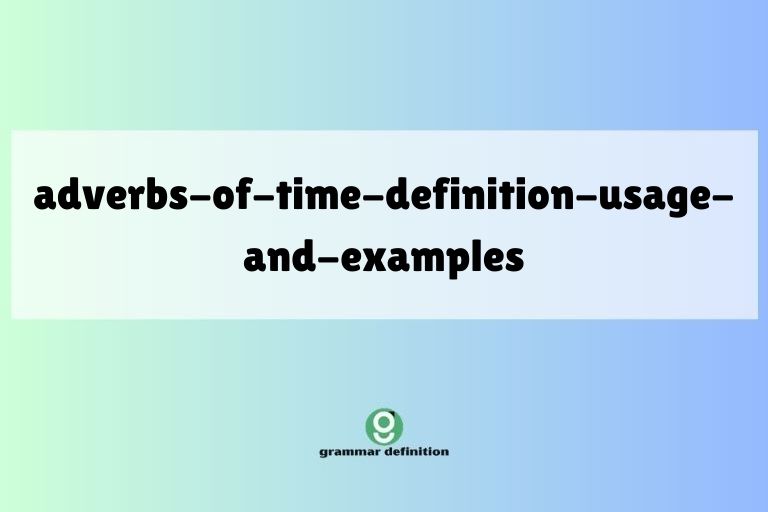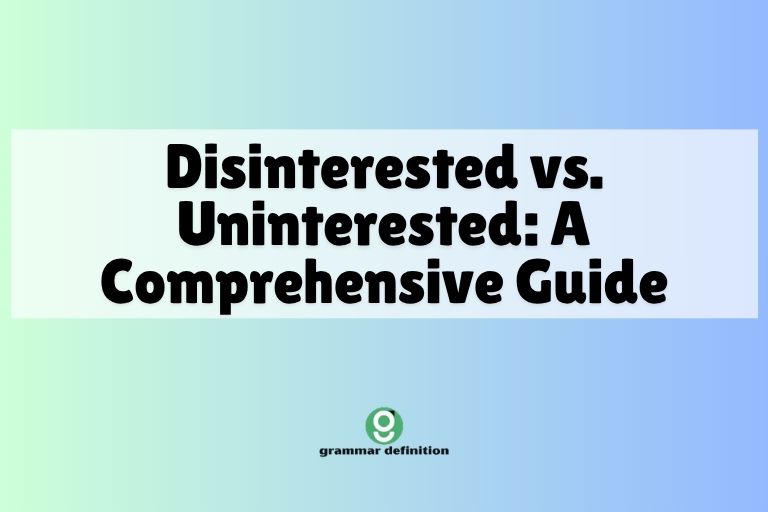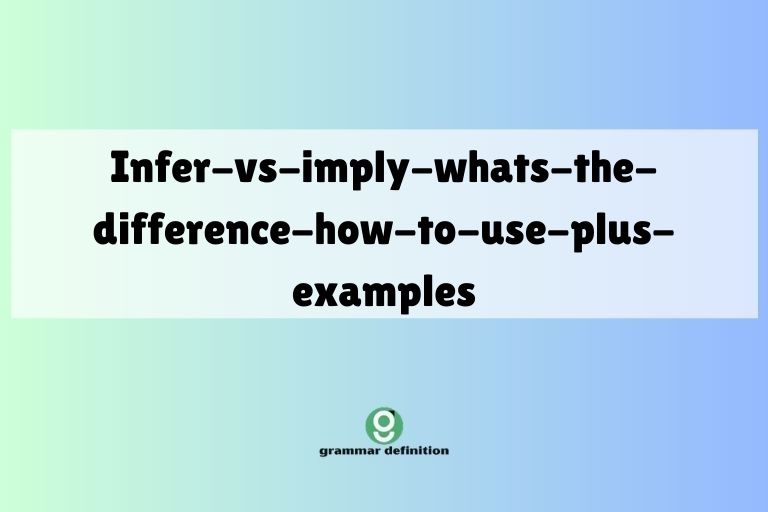Adverbs of Time: Definition, Usage, and Examples

Understanding adverbs of time is crucial for constructing clear and coherent sentences in English. These adverbs provide essential context about when an action occurred, how frequently it happens, or for how long it lasts.
Mastering their usage enables you to express temporal relationships accurately and effectively. This article offers a comprehensive guide to adverbs of time, covering their definition, types, usage rules, common mistakes, and practice exercises.
Whether you’re a beginner or an advanced learner, this resource will help you enhance your understanding and application of adverbs of time.
Table of Contents
- Introduction
- Definition of Adverbs of Time
- Structural Breakdown
- Types of Adverbs of Time
- Examples of Adverbs of Time
- Usage Rules for Adverbs of Time
- Common Mistakes with Adverbs of Time
- Practice Exercises
- Advanced Topics
- FAQ
- Conclusion
Definition of Adverbs of Time
An adverb of time, also known as a temporal adverb, is a word or phrase that modifies a verb, adjective, or another adverb by indicating when, how often, or for how long something happens. These adverbs provide temporal context, helping to establish the timing and duration of actions or events.
They answer questions such as “when?”, “how often?”, or “for how long?”. Adverbs of time are essential for creating clear and precise sentences, allowing for a nuanced understanding of the temporal aspects of a situation.
Adverbs of time can be single words (e.g., yesterday, soon, always) or phrases (e.g., in the morning, for five years, every other day). They play a crucial role in conveying the sequence, frequency, and duration of events, thereby enhancing the clarity and coherence of communication. They are versatile and can be placed in various positions within a sentence, although their placement can sometimes affect the emphasis or meaning.
Structural Breakdown
The structure of adverbs of time can vary depending on whether they are single-word adverbs or adverbial phrases. Single-word adverbs are typically simple and direct, while adverbial phrases can be more complex, often involving prepositions and nouns or other adverbs.
Single-Word Adverbs: These are individual words that function as adverbs of time. Examples include today, yesterday, tomorrow, now, then, soon, late, early, always, never, often, sometimes, rarely, and usually. These adverbs are often placed before the main verb or at the end of the sentence.
Adverbial Phrases: These consist of two or more words that together function as an adverb of time. They can include prepositional phrases (e.g., in the morning, on Tuesday, at 5 PM), noun phrases (e.g., last week, next year), or combinations of adverbs and other words (e.g., very soon, quite recently). The structure of these phrases allows for more specific and detailed temporal information.
Placement: The placement of adverbs of time within a sentence can affect the emphasis and meaning. Generally, adverbs of definite time (e.g., yesterday, today) are placed at the beginning or end of the sentence. Adverbs of frequency (e.g., always, often) are usually placed before the main verb but after the auxiliary verb (if there is one). Adverbs of duration (e.g., for an hour, since 2020) are typically placed at the end of the sentence.
Types of Adverbs of Time
Adverbs of time can be classified into several categories based on the type of temporal information they convey. The main categories include adverbs of definite time, adverbs of indefinite time, adverbs of frequency, and adverbs of duration.
Adverbs of Definite Time
Adverbs of definite time specify a particular point in time when an action occurs. They provide precise information about when something happened, is happening, or will happen.
These adverbs are often used to set a specific context for the action.
Examples include: yesterday, today, tomorrow, now, then, tonight, this morning, last week, next year, on Monday, at 3 PM.
Adverbs of Indefinite Time
Adverbs of indefinite time indicate when an action occurs without specifying an exact time. They provide a general sense of timing, suggesting that something happened at some point in the past, present, or future, but without precise details.
Examples include: already, yet, still, soon, early, late, recently, lately.
Adverbs of Frequency
Adverbs of frequency describe how often an action occurs. They indicate the regularity or repetition of an event.
These adverbs are essential for expressing habits, routines, and recurring activities.
Examples include: always, usually, often, sometimes, rarely, seldom, never, every day, once a week, twice a month, occasionally, frequently.
Adverbs of Duration
Adverbs of duration specify how long an action continues or lasts. They indicate the length of time that an event persists.
These adverbs are crucial for conveying the temporal extent of activities or states.
Examples include: for an hour, since yesterday, all day, the whole week, briefly, temporarily, permanently, for years, since 2010.
Examples of Adverbs of Time
The following tables provide extensive examples of adverbs of time, categorized by their type. Each table includes a variety of sentences to illustrate how these adverbs are used in different contexts.
Table 1: Examples of Adverbs of Definite Time
This table provides examples of adverbs that specify a particular point in time when an action occurs.
| Adverb of Definite Time | Example Sentence |
|---|---|
| Yesterday | I went to the store yesterday. |
| Today | I am going to the park today. |
| Tomorrow | She will arrive tomorrow. |
| Now | We need to leave now. |
| Then | I was living in London then. |
| Tonight | We are having dinner tonight. |
| This morning | I woke up early this morning. |
| Last week | They went on vacation last week. |
| Next year | He plans to travel next year. |
| On Monday | The meeting is scheduled for on Monday. |
| At 3 PM | The appointment is at 3 PM. |
| Last night | We watched a movie last night. |
| This afternoon | I’m going to the gym this afternoon. |
| Next month | The new project starts next month. |
| On Friday | We celebrate on Friday. |
| At noon | The sun is highest at noon. |
| This evening | I have a date this evening. |
| Last summer | We visited Italy last summer. |
| Next winter | We’re planning a ski trip next winter. |
| On Christmas | We exchange gifts on Christmas. |
| At midnight | The clock strikes at midnight. |
| This decade | Technology has advanced rapidly this decade. |
| Last century | The industrial revolution began last century. |
| Next millennium | Humans may colonize other planets next millennium. |
| On my birthday | I always have a party on my birthday. |
| At sunrise | The birds start singing at sunrise. |
| This instant | Stop what you’re doing this instant! |
Table 2: Examples of Adverbs of Indefinite Time
This table showcases adverbs that indicate when an action occurs without specifying an exact time.
| Adverb of Indefinite Time | Example Sentence |
|---|---|
| Already | I have already finished my homework. |
| Yet | Have you finished your homework yet? |
| Still | She is still working on the project. |
| Soon | The movie will start soon. |
| Early | He arrived early for the meeting. |
| Late | She was late to the party. |
| Recently | I have recently started learning Spanish. |
| Lately | I haven’t seen him lately. |
| Before | I had never seen such a thing before. |
| After | We went for a walk after dinner. |
| Eventually | Eventually, he succeeded in his endeavors. |
| Immediately | We need to address this issue immediately. |
| Instantly | The machine stopped instantly. |
| Shortly | The train will arrive shortly. |
| Previously | I had previously worked at a different company. |
| Presently | We are presently working on the report. |
| Sometime | Let’s meet for coffee sometime this week. |
| Sooner | The sooner we start, the better. |
| Latter | In the latter part of the film, the plot thickens. |
| Earlier | I called you earlier today. |
| Once | I went there once. |
| Twice | I visited Paris twice. |
| Thrice | He knocked thrice on the door. |
| Then | Then, everything changed. |
Table 3: Examples of Adverbs of Frequency
This table provides examples of adverbs that describe how often an action occurs.
| Adverb of Frequency | Example Sentence |
|---|---|
| Always | I always brush my teeth before bed. |
| Usually | She usually walks to work. |
| Often | They often go out for dinner. |
| Sometimes | We sometimes visit our grandparents. |
| Rarely | He rarely eats fast food. |
| Seldom | She seldom complains about anything. |
| Never | I have never been to Japan. |
| Every day | I drink coffee every day. |
| Once a week | We go swimming once a week. |
| Twice a month | The book club meets twice a month. |
| Occasionally | We occasionally have guests over. |
| Frequently | He frequently travels for business. |
| Generally | Generally, I wake up early. |
| Normally | Normally, she takes the bus. |
| Regularly | We regularly exercise. |
| Hardly ever | I hardly ever watch TV. |
| Constantly | He is constantly checking his phone. |
| Continually | The rain was continually falling. |
| Periodically | The system is checked periodically. |
| Annually | The conference is held annually. |
| Monthly | The rent is paid monthly. |
| Weekly | The groceries are bought weekly. |
| Hourly | The updates are provided hourly. |
Table 4: Examples of Adverbs of Duration
This table provides examples of adverbs that specify how long an action continues or lasts.
| Adverb of Duration | Example Sentence |
|---|---|
| For an hour | I studied for an hour. |
| Since yesterday | I have been waiting since yesterday. |
| All day | It rained all day. |
| The whole week | I was sick the whole week. |
| Briefly | He spoke briefly about the project. |
| Temporarily | The road is closed temporarily. |
| Permanently | The change is permanently in effect. |
| For years | They have lived there for years. |
| Since 2010 | She has worked here since 2010. |
| For a while | Let’s rest for a while. |
| For the time being | This is sufficient for the time being. |
| For good | He left for good. |
| Throughout the day | The phone rang throughout the day. |
| From dawn till dusk | They worked from dawn till dusk. |
| Perpetually | The flame burned perpetually. |
| Lastingly | The impact was lastingly felt. |
| Endlessly | The possibilities are endlessly fascinating. |
| Continually | The machine ran continually. |
| Uninterruptedly | He spoke uninterruptedly for an hour. |
| For a short time | I will be away for a short time. |
| For a long time | I haven’t seen you for a long time. |
Usage Rules for Adverbs of Time
Using adverbs of time correctly involves understanding their placement and how they interact with other parts of the sentence. Here are some key usage rules to consider:
- Placement of Adverbs of Definite Time: These adverbs are usually placed at the beginning or end of the sentence. Placing them at the beginning can add emphasis.
- Example: Yesterday, I went to the library. / I went to the library yesterday.
- Placement of Adverbs of Indefinite Time: These adverbs often appear before the main verb but after the auxiliary verb (if there is one).
- Example: I have already finished my work. / She is still waiting for the bus.
- Placement of Adverbs of Frequency: Similar to indefinite time adverbs, frequency adverbs usually go before the main verb but after the auxiliary verb.
- Example: I always drink coffee in the morning. / They often go to the movies.
- Placement of Adverbs of Duration: These adverbs typically appear at the end of the sentence.
- Example: I studied for three hours. / She has lived here since 2015.
- Order of Adverbs: When using multiple adverbs of time in a sentence, the general order is: frequency, manner, place, and time.
- Example: He visits his family often (frequency) happily (manner) at their home (place) on Sundays (time).
- Emphasis: The placement of adverbs can change the emphasis of the sentence. Moving an adverb to the beginning of the sentence often adds more importance to the temporal aspect.
- Example: Tomorrow, I will start my new job (emphasizes the starting date).
- Avoiding Ambiguity: Ensure that the placement of the adverb does not create ambiguity. Place the adverb as close as possible to the word it modifies.
- Example: Incorrect: I only ate breakfast yesterday. (Did you only eat breakfast, or did you only eat yesterday?) Correct: I ate breakfast only yesterday. (You ate breakfast, but only yesterday).
Common Mistakes with Adverbs of Time
Several common mistakes can occur when using adverbs of time. Being aware of these errors can help you avoid them and improve your accuracy.
- Incorrect Placement of Adverbs of Frequency: A common mistake is placing adverbs of frequency at the beginning or end of the sentence when they should be before the main verb or after the auxiliary verb.
- Incorrect: I go always to the gym. Correct: I always go to the gym.
- Misusing “Since” and “For”: “Since” is used to indicate a starting point in time, while “for” is used to indicate a duration. Mixing these up is a common error.
- Incorrect: I have lived here since five years. Correct: I have lived here for five years. / I have lived here since 2018.
- Redundant Use of Adverbs: Avoid using multiple adverbs of time that convey the same information.
- Incorrect: I will meet you at 3 PM in the afternoon. Correct: I will meet you at 3 PM. / I will meet you in the afternoon.
- Incorrect Tense Usage: Ensure that the tense of the verb aligns with the adverb of time.
- Incorrect: I will see him yesterday. Correct: I saw him yesterday.
- Confusing “Lately” and “Recently”: While similar, “lately” implies a period leading up to the present, while “recently” is more general.
- Incorrect: I have recently been feeling tired. Correct: I have lately been feeling tired.
- Misplacing “Yet”: “Yet” is typically used in questions or negative sentences and is placed at the end of the sentence.
- Incorrect: I yet have not finished. Correct: I have not finished yet. Have you finished yet?
- Using “Ago” Incorrectly: “Ago” should always come after the period of time.
- Incorrect: Two years before, I went to Italy. Correct: I went to Italy two years ago.
Table 5: Correct vs. Incorrect Examples
This table illustrates common mistakes with adverbs of time and provides correct alternatives.
| Incorrect | Correct |
|---|---|
| I go always to the park. | I always go to the park. |
| I have lived here since five years. | I have lived here for five years. |
| I will meet you at 3 PM in the afternoon. | I will meet you at 3 PM. / I will meet you in the afternoon. |
| I will see him yesterday. | I saw him yesterday. |
| I have recently been feeling tired. | I have lately been feeling tired. |
| I yet have not finished. | I have not finished yet. |
| Two years before, I went to Italy. | I went to Italy two years ago. |
| She will come tomorrowly. | She will come tomorrow. |
| I am going to the library in yesterday. | I went to the library yesterday. |
| He is very often late. | He is often late. |
Practice Exercises
Test your understanding of adverbs of time with these practice exercises. Each exercise focuses on different aspects of adverb usage, from identifying adverbs to using them correctly in sentences.
Exercise 1: Identifying Adverbs of Time
Identify the adverbs of time in the following sentences.
Table 6: Exercise 1 – Identifying Adverbs of Time
| Question | Answer |
|---|---|
| I will see you tomorrow. | Tomorrow |
| She always arrives early. | Always, early |
| They went to the beach last week. | Last week |
| We often eat pizza on Fridays. | Often, on Fridays |
| He has already finished his work. | Already |
| The movie starts soon. | Soon |
| I have been waiting since yesterday. | Since yesterday |
| She rarely goes out at night. | Rarely, at night |
| We will visit them next month. | Next month |
| I usually drink coffee in the morning. | Usually, in the morning |
Exercise 2: Fill in the Blanks
Fill in the blanks with the correct adverb of time from the options provided.
Table 7: Exercise 2 – Fill in the Blanks
| Question | Options | Answer |
|---|---|---|
| I will call you ______. | (yesterday, tomorrow, always) | tomorrow |
| She ______ goes to the gym. | (never, often, last week) | often |
| They arrived ______ for the meeting. | (late, early, soon) | early |
| We haven’t seen him ______. | (yet, today, last year) | yet |
| He has lived here ______ 2010. | (for, since, ago) | since |
| I study English ______. | (every day, yesterday, soon) | every day |
| The concert starts ______. | (now, after, before) | now |
| She finished her work ______. | (already, still, lately) | already |
| We went to Italy two years ______. | (ago, since, for) | ago |
| I will see you ______. | (tonight, last night, this morning) | tonight |
Exercise 3: Correct the Sentences
Correct the sentences with incorrect adverb of time usage.
Table 8: Exercise 3 – Correct the Sentences
| Question | Answer |
|---|---|
| I go always to the library. | I always go to the library. |
| She will come tomorrowly. | She will come tomorrow. |
| I am going to the library in yesterday. | I went to the library yesterday. |
| He is very often late. | He is often late. |
| I have lived here since five years. | I have lived here for five years. |
| I will see him yesterday. | I saw him yesterday. |
| I yet have not finished. | I have not finished yet. |
| Two years before, I went to Italy. | I went to Italy two years ago. |
| I will meet you at 3 PM in the afternoon. | I will meet you at 3 PM. |
| I have recently been feeling tired. | I have lately been feeling tired. |
Advanced Topics
For advanced learners, understanding more complex aspects of adverbs of time can further enhance their proficiency. These topics include the use of adverbs of time in complex sentences, their impact on sentence rhythm, and their role in creating specific stylistic effects.
- Adverbs of Time in Complex Sentences: In complex sentences, adverbs of time can help establish the temporal relationship between the main clause and the subordinate clause. For example: “After I finish my work, I will go to the gym.” Here, “after” indicates the sequence of events.
- Adverbs of Time and Sentence Rhythm: The placement of adverbs of time can affect the rhythm and flow of a sentence. Placing a longer adverbial phrase at the beginning can slow down the pace, while placing it at the end can create a sense of closure.
- Stylistic Effects: Adverbs of time can be used to create specific stylistic effects, such as building suspense or creating a sense of urgency. For example, using “suddenly” or “immediately” can add drama to a narrative.
- Adverbial Clauses of Time: These are subordinate clauses that function as adverbs of time. They begin with subordinating conjunctions such as when, while, as, before, after, since, until, as soon as, whenever, and as long as. These clauses provide more detailed information about the timing of the main clause’s action.
- Example: When the bell rings, the students will leave the classroom.
FAQ
Here are some frequently asked questions about adverbs of time:
- What is the difference between an adverb of time and an adverb of frequency?
An adverb of time indicates when something happens (e.g., yesterday, now), while an adverb of frequency indicates how often something happens (e.g., always, sometimes). The key difference is whether they specify a point in time or the regularity of an action.
- Where should I place adverbs of frequency in a sentence?
Adverbs of frequency typically go before the main verb but after the auxiliary verb (if there is one). For example: “I always drink coffee in the morning.” However, adverbs like “sometimes,” “usually,” and “often” can also be placed at the beginning or end of the sentence for emphasis.
- How do I use “since” and “for” correctly?
“Since” is used to indicate a starting point in time (e.g., “I have lived here since 2010”), while “for” is used to indicate a duration (e.g., “I have lived here for ten years”). Make sure to use the correct preposition to avoid confusion.
- Can I use multiple adverbs of time in one sentence?
Yes, but be mindful of the order and avoid redundancy. A general guideline is to order them from most specific to most general. For example: “I will meet you at 3 PM on Tuesday next week.”
- What is an adverbial clause of time?
An adverbial clause of time is a subordinate clause that functions as an adverb of time. It begins with a subordinating conjunction such as when, while, before, after, or since. For example: “I will call you after I finish work.”
- How can adverbs of time affect the meaning of a sentence?
Adverbs of time provide crucial temporal context, indicating when, how often, or for how long an action occurs. They can significantly alter the meaning of a sentence by specifying the timing and duration of events. Without them, the sentence might lack clarity or precision.
- What are some common mistakes to avoid when using adverbs of time?
Common mistakes include incorrect placement of adverbs of frequency, misusing “since” and “for,” redundant use of adverbs, and incorrect tense usage. Being aware of these pitfalls can help you improve your accuracy.
- Are there any exceptions to the placement rules for adverbs of time?






